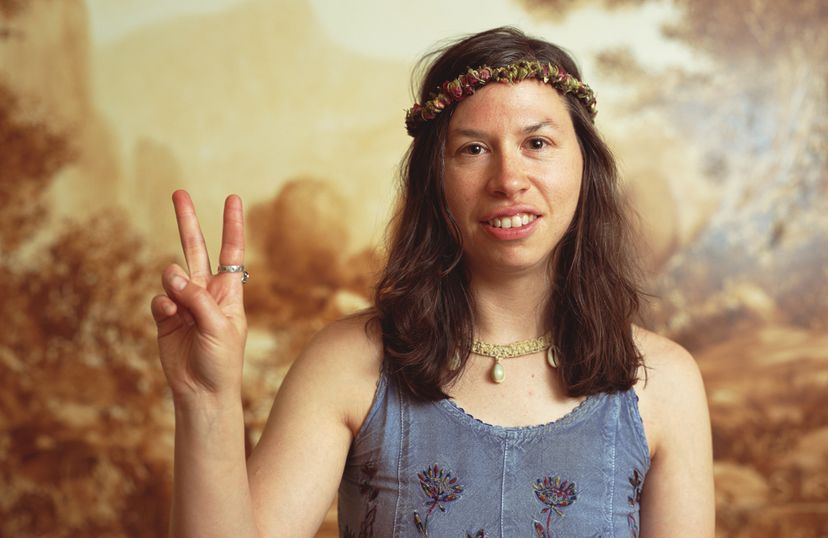
Beat poet and counterculture leader Allen Ginsberg propagated the "flower power" concept while helping organize a November 1965 protest against the Vietnam War in Berkeley, Calif.
San Francisco and its Haight-Ashbury district became the unofficial capitol of flower power and the hippie movement, culminating with the 1967 Summer of Love.
Ginsberg suggested protestors also take along a variety of benign objects, including toy soldiers, rubber swords, candy bars, instruments and crosses.
Advertisement
On Oct. 21, 1967, more than 100,000 demonstrators gathered in Washington D.C. to protest the Vietnam War, and a group of hippies attempted to levitate the Pentagon building. They were, not surprisingly, unsuccessful.
The Monterey International Pop Festival in June 1967, featuring Jimi Hendrix, The Who, and The Mamas and the Papas, marked the pinnacle of the Summer of Love in San Francisco.
In a public display of disenchantment with the psychedelic lifestyle and the mainstreaming of the hippie movement, a funeral parade mourning the "Death of the Hippie" marched through the Haight-Ashbury district on October 6, 1967.
Advertisement
Flower power came into mainstream America with Scott McKenzie's 1967 hit "San Francisco." The popular hippie anthem sang "If you're going to San Francisco, be sure to wear some flowers in your hair."
Popular legend maintains that in an attempt to one-up the stage shenanigans of The Who, Jimi Hendrix set his guitar on fire while performing at the Monterey International Pop Festival.
LSD guru and ex-Harvard professor Timothy Leary famously told the hippie masses at the Human Be-In to "tune in, turn off and drop out," urging them to drop out of school and pursue the psychedelic lifestyle.
Advertisement
The Hells Angels motorcycle gang supported the Vietnam War and often threatened to shut down antiwar protests by force.
In 1969, The Rolling Stones hired the Hells Angels as security at their Altamont Free Concert. But when a concert goer got into a scuffle with one of the Hells Angels, the skirmish ended in murder.
As San Francisco became a hub of LSD use in the mid-1960s, California legally banned the drug in October 1966.
Advertisement
Originally coined as an insult for people who chased fads, "hippie" began catching on in San Francisco in 1953.
Hippie "free love" was partially responsible for a 165 percent increase in California's syphilis and gonorrhea contraction rate.
The San Francisco Oracle, which was only published from 1966 to 1968, served as the unofficial paper of the hippie psychedelic lifestyle, featuring articles such as "The Politics of Ecstasy."
Advertisement
Author of "One Flew Over the Cuckoo's Nest," Ken Kesey and his band of Merry Pranksters experimented heavily with psychedelic drugs and organized the Acid Test gatherings. Tom Wolfe documented Kesey's acid antics in his book "Electric Kool-Aid Acid Test."
Although the origin has been disputed, comedian Gershon Legman claims to have coined the phrase during a 1963 speech at Ohio University.
Rolling Stone published its first issue on Nov. 9, 1967, featuring John Lennon and Yoko Ono on the cover.
Advertisement
Riffing the line "If you're going to San Francisco, be sure to wear some flowers in your hair," from Scott Mackenzie's 1967 hit "San Francisco," people referred to the San Francisco transplants as flower children.
Just in time for the Summer of Love, The Beatles released "Sgt. Pepper's Lonely Hearts Club Band" in June 1967.